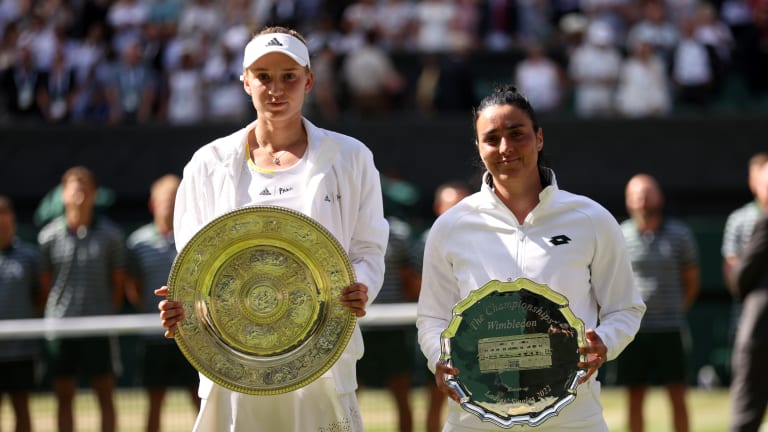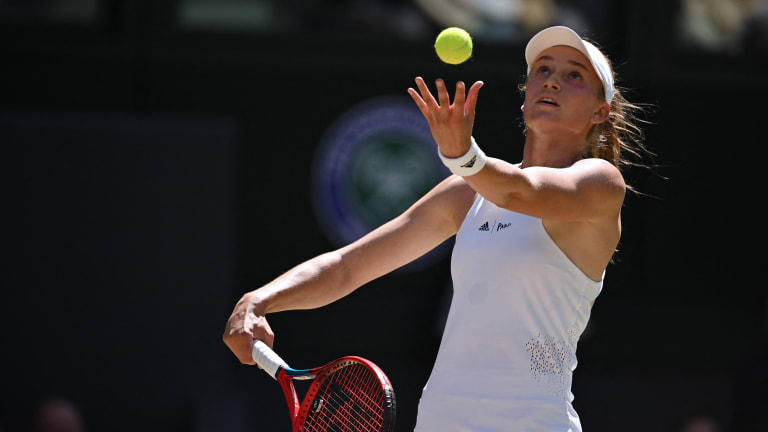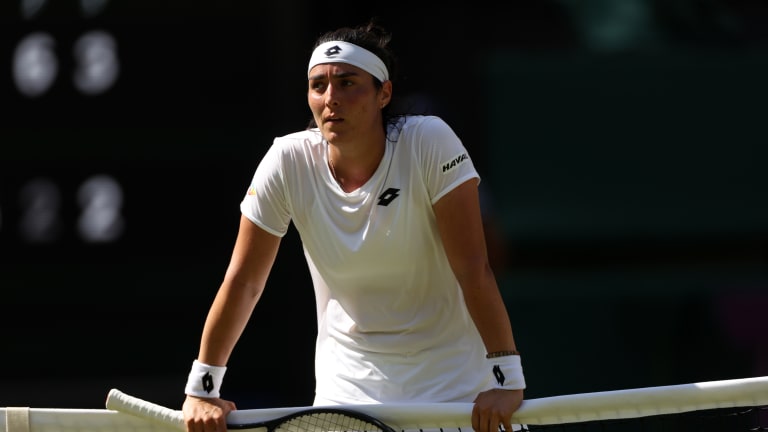Wimbledon
Elena Rybakina: From nervous wreck to Wimbledon champion in under two hours
By Jul 09, 2022Wimbledon
Darren Cahill: Jannik Sinner watches more Carlos Alcaraz matches than he does with any other player
By Jul 14, 2025Wimbledon
Jannik Sinner reignites Carlos Alcaraz rivalry with Wimbledon victory
By Jul 14, 2025Wimbledon
Jannik Sinner reversed his usual pattern against Carlos Alcaraz. It won him Wimbledon
By Jul 14, 2025Wimbledon
Veronika Kudermetova and Elise Mertens win women's doubles title at Wimbledon
By Jul 13, 2025Wimbledon
Joy to the World: What Carlos Alcaraz has, and what we are enjoying
By Jul 13, 2025Wimbledon
Iga Swiatek keeps surprising herself after Wimbledon title caps "surreal" turnaround on grass
By Jul 12, 2025Wimbledon
Iga Swiatek wins first Wimbledon, sixth Grand Slam title with 6-0, 6-0 rout of Amanda Anisimova
By Jul 12, 2025Wimbledon
Wimbledon men's final preview: Will Carlos Alcaraz, Jannik Sinner share another epic?
By Jul 12, 2025Wimbledon
Julian Cash, Lloyd Glasspool become first all-British pair to win Wimbledon men's doubles title since 1936
By Jul 12, 2025Elena Rybakina: From nervous wreck to Wimbledon champion in under two hours
The 17th seed gave tennis another Cinderella Grand Slam story, while Ons Jabeur's history-making bid came just short.
Published Jul 09, 2022
Advertising
Advertising

Jabeur will rue this loss, but Rybakina is a worthy Wimbledon champion.
© Getty Images
Advertising

Rybakina's serve is lethal on grass, and made it difficult for Jabeur to mount a comeback from a break down.
© AFP via Getty Images
Advertising

When it came to shotmaking, Jabeur made the wrong choices throughout the second and third sets of the final.
© Getty Images